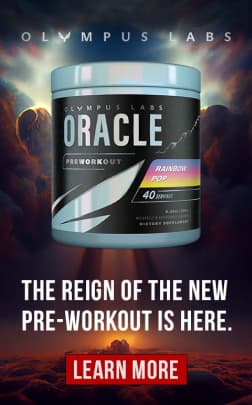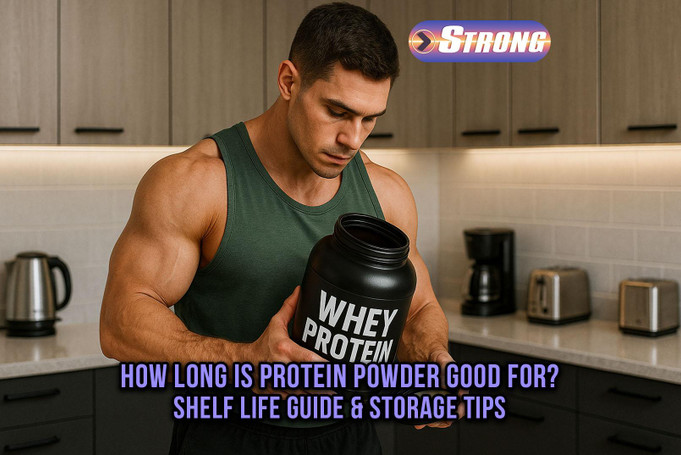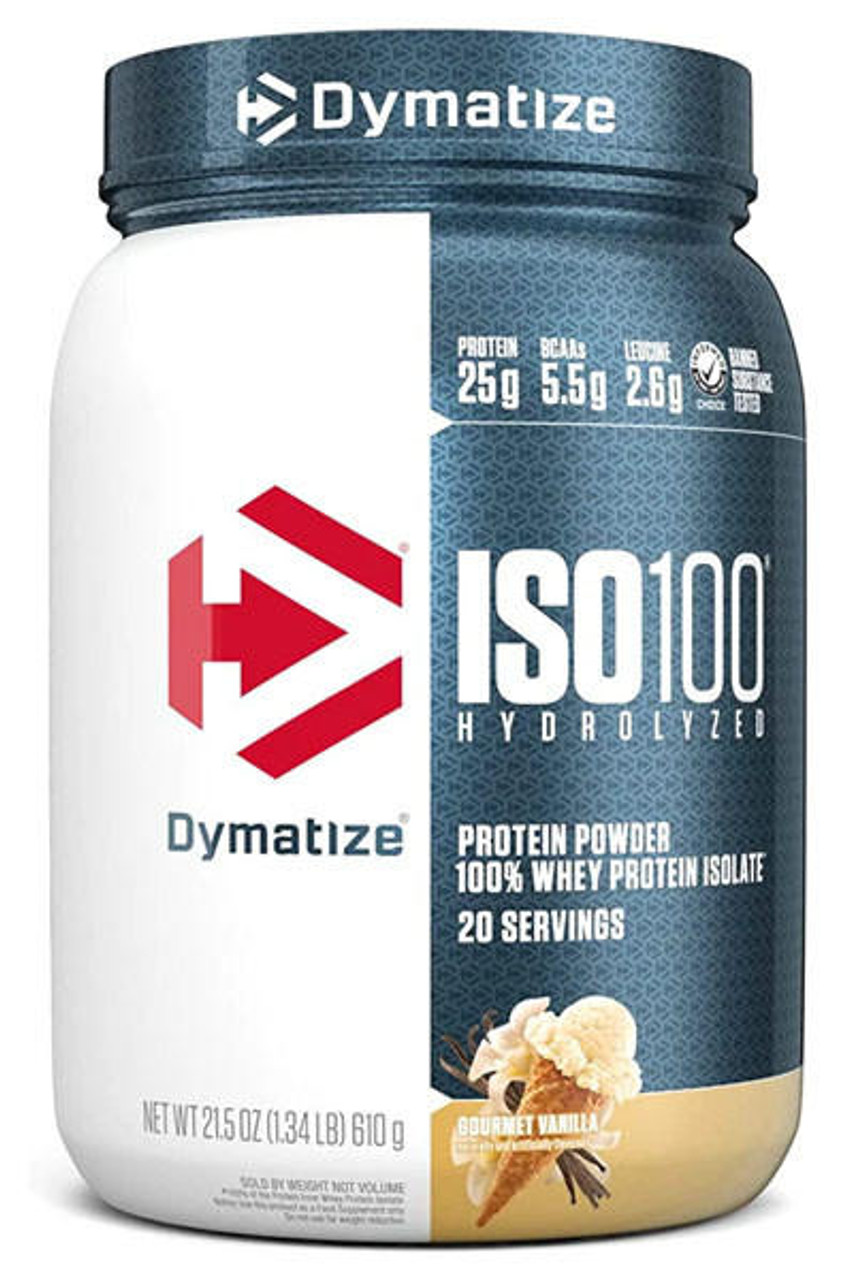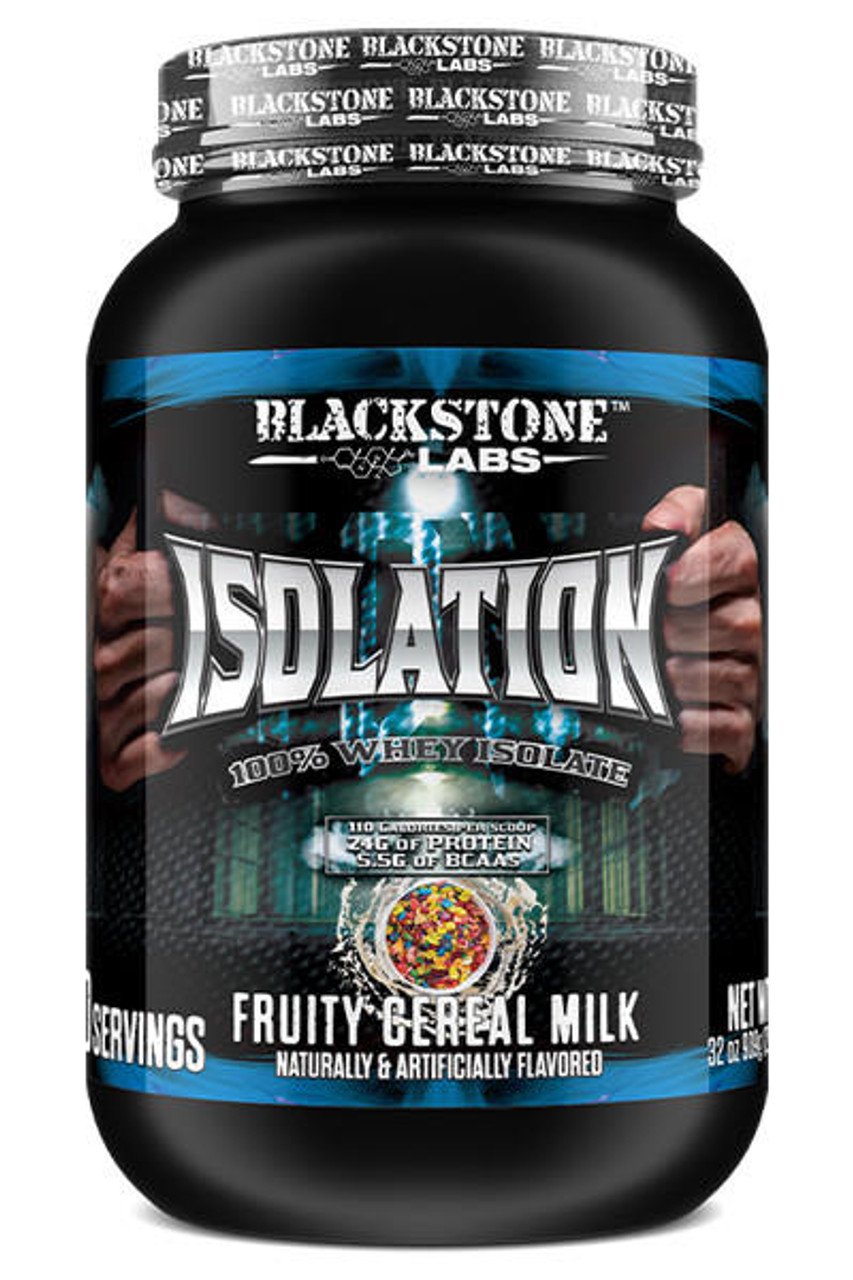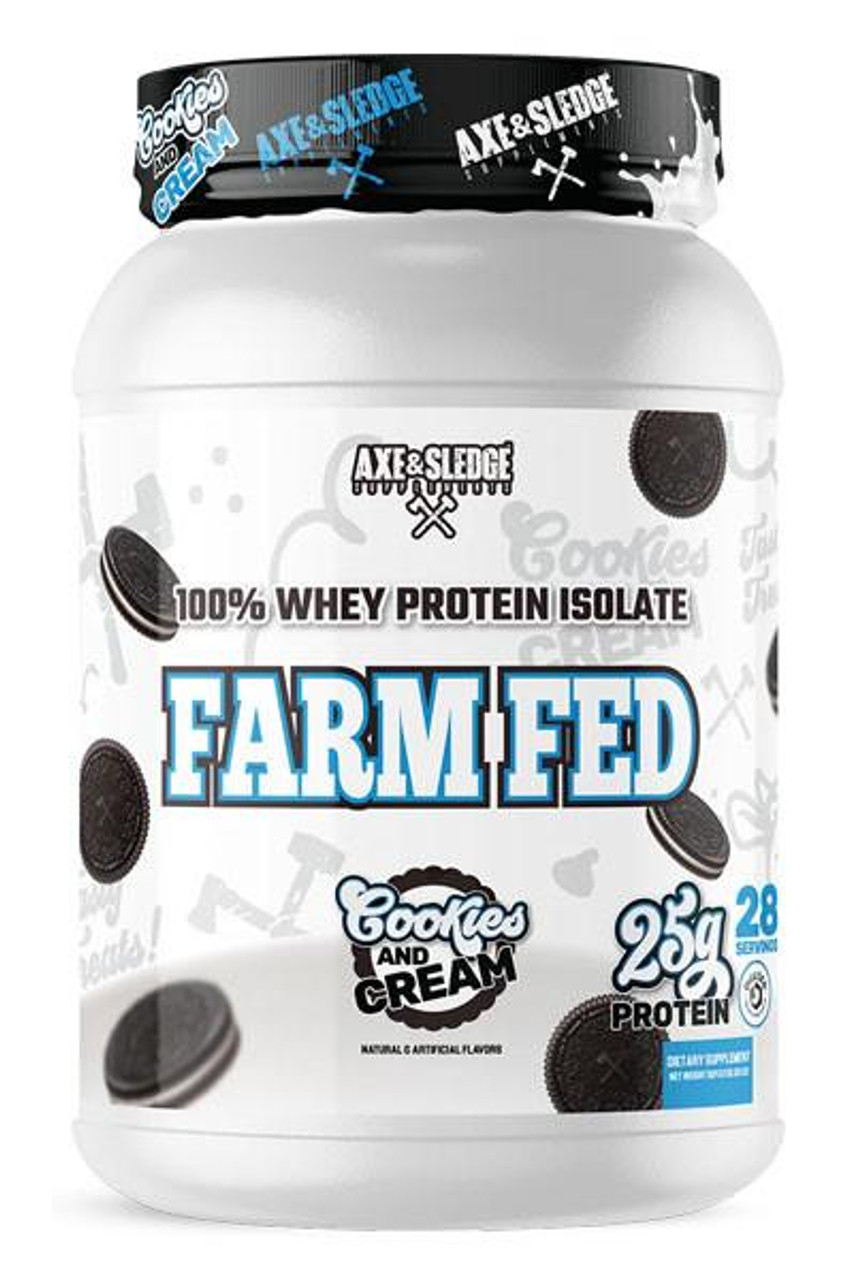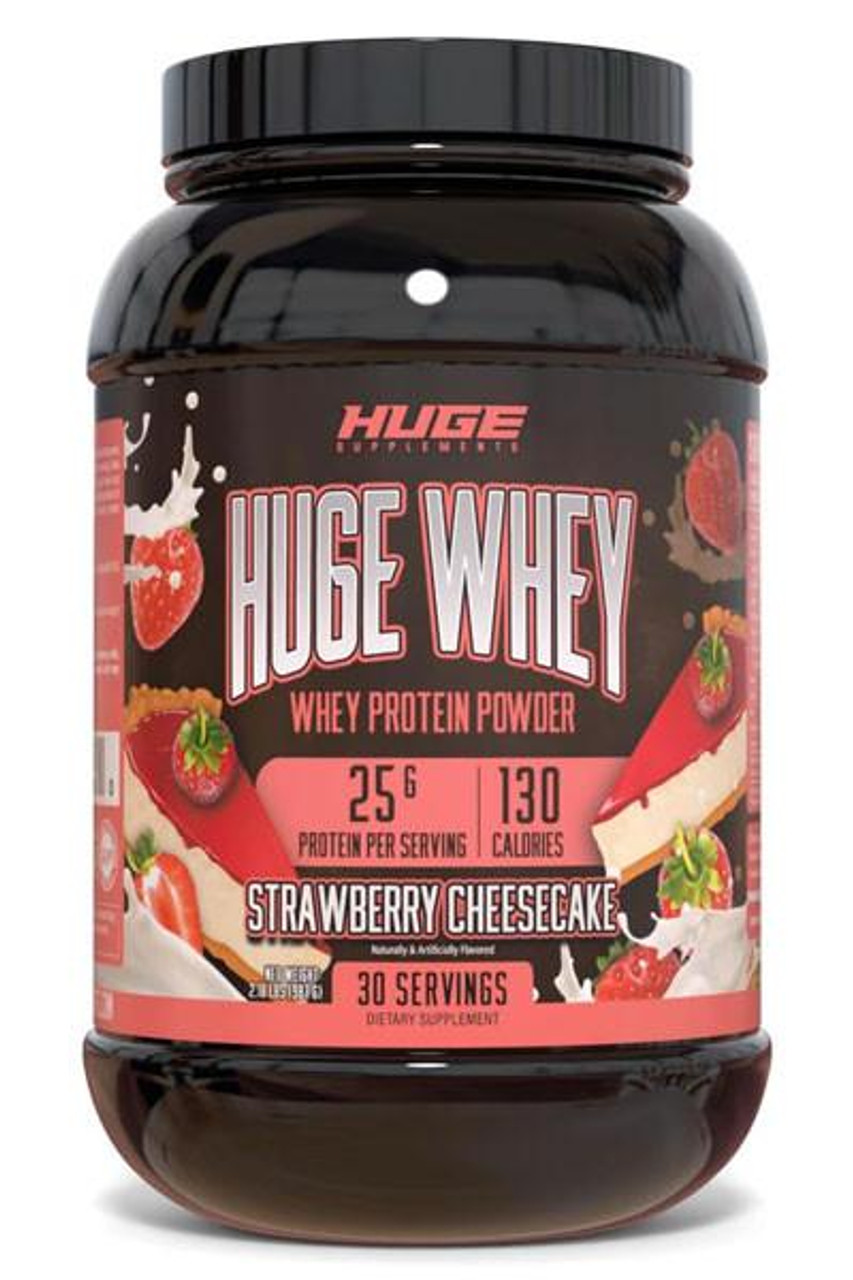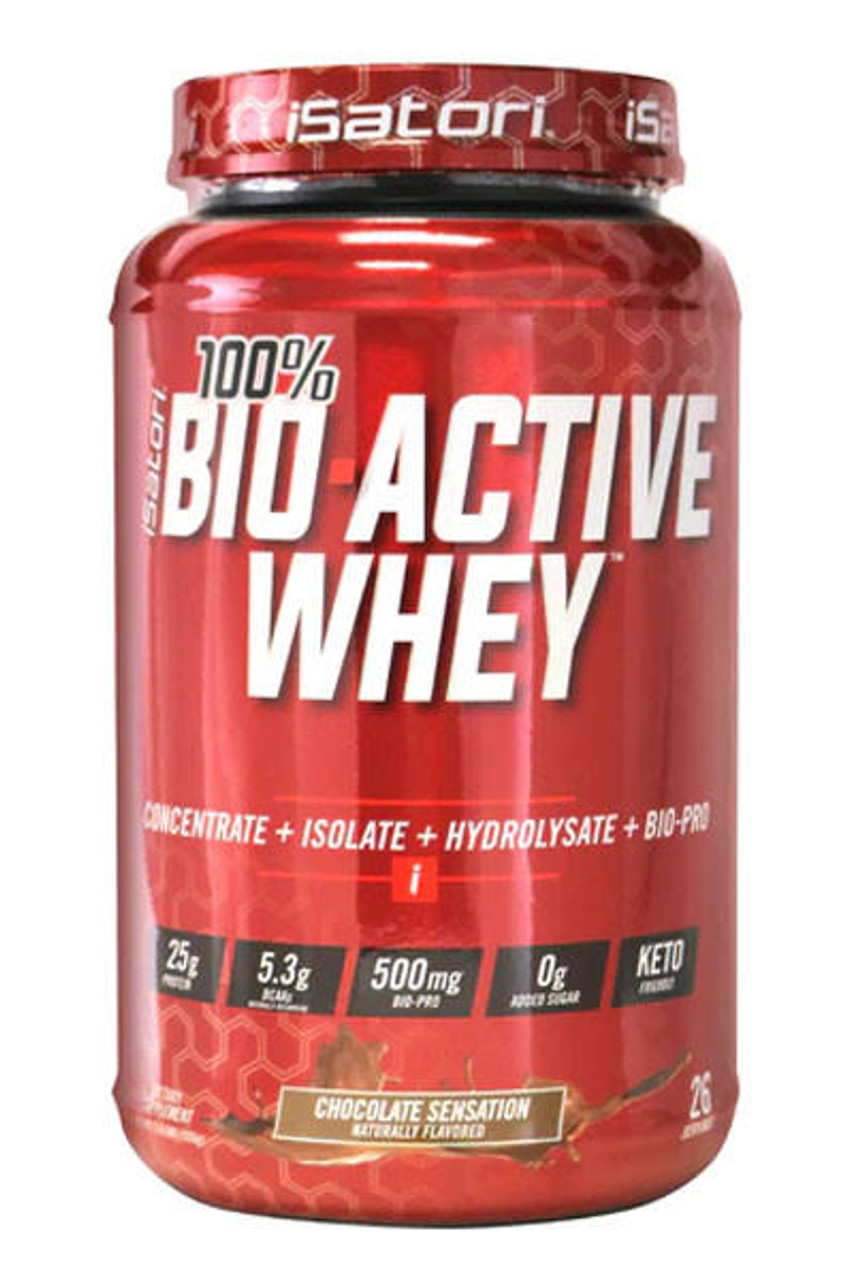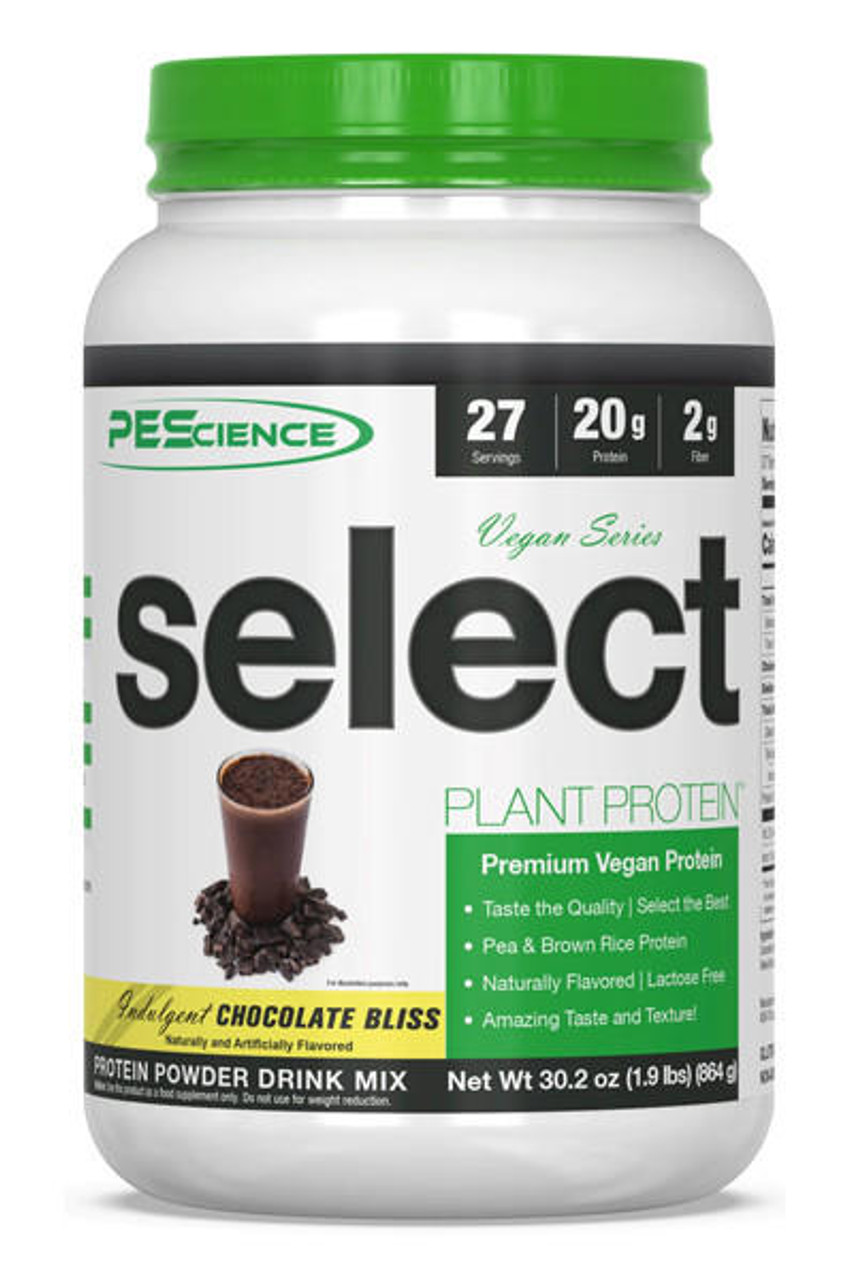How Long Is Protein Powder Good For? Shelf Life Guide
Posted by Leonard Shemtob on Oct 09, 2025
Protein powder has become a daily part of many fitness, men's health, and women's health routines. People use it to build muscle, recover after workouts, or add extra protein to their meals or morning smoothies. But one common question remains: how long is protein powder good for?
The good news is that most unopened protein powders have a long shelf life, often lasting for 1 to 2 years from the manufacturing date. However, how you store it, the type of protein it is, and whether the container has been opened can all change that timeline.
In this guide, we’ll look at how long protein powder stays good for, how to store it the right way, and the clear signs that it’s gone bad — so you can use your supplement safely and effectively.
[Related] Best Protein Powder for Muscle Gain: Top Picks for 2025
Quick Summary
- Shelf Life: Most protein powders stay good for 1–2 years (sometimes 12–18 months for certain plant or collagen types) when stored properly in a cool, dry place.
- After Opening: Once opened, it’s best to use protein powder within 6–12 months for the best flavor and quality.
- Storage Tips: Keep your powder away from heat, moisture, and direct sunlight to prevent clumping or spoilage.
- Signs of Spoilage: Always check for signs that the powder has gone bad, including a rancid smell, bitter taste, color changes, or excessive clumping.
- Expired Powder Safety: Using slightly expired powder may not harm you, but it can lose taste and amino acid quality.
- Our Top Pick: Dymatize ISO 100 is our top choice, a hydrolyzed isolate that delivers 25 grams of pure, fast-digesting protein to support muscle building and recovery.
Does Protein Powder Expire?
Yes, protein powder does expire, just like any other food product. The date printed on the container — usually labeled as “best by” or “use by” — tells you how long the product should keep its best quality, flavor, and nutritional value. After that date, it doesn’t suddenly become unsafe, but its flavor, texture, and mixability may start to decline.
Over time, the ingredients in protein powder can break down. For example, fats may turn rancid, flavors can fade, and the powder might not mix as smoothly as before. If stored in a warm or humid place, it can also absorb moisture, leading to clumps or even mold growth.
Using slightly expired protein powder won’t usually make you sick, but it may not give you the same results. However, if it smells bad, tastes sour, or looks discolored, it’s better to throw it away.
How Long Is Protein Powder Good For?
Protein powder has a long shelf life, making it a reliable staple for your nutrition routine. While it's safe for consuming protein powder shortly after its "best by" date, its quality will eventually decline.
Like many low-moisture foods, its main enemies are elevated temperature and humidity. Storing it at a stable room temperature away from heat sources is one of the optimal conditions to prevent undesirable changes like clumping or rancidity.
1. Unopened Protein Powder
When a container of protein powder is unopened and stored correctly, you can expect it to last a long time.
- Average Shelf Life: Most manufacturers state a shelf life of 12 to 24 months (1 to 2 years) from the date it was made.
- The Science: Because dry protein powder is low-moisture product, it’s very resistant to bacterial growth, though oxidation and Maillard reactions can gradually impact flavor and nutrient quality.
- Additives Matter: Many modern protein powders contain gums, emulsifiers, or anti-caking agents that help maintain texture and increase shelf life closer to that two-year mark.
A Key Distinction: "Best-By" vs. "Expired"
The date printed on your tub is almost always a "Best-By" or "Use-By" date. This is the date the manufacturer guarantees the product will be at its peak quality, meaning the best taste, texture, and nutritional value. It is not a strict safety date.
In many cases, an unopened, properly stored protein powder may be safe to consume for several months—or even up to a year—past the "Best-By" date, although its effectiveness (the amount of useful protein) may start to slowly decline.
2. Opened Protein Powder
Once you break the seal, you introduce two major enemies of freshness: air and moisture.
- Recommended Use Time: For best results in terms of taste, mixability, and potency, most experts recommend using opened protein powder within 3 to 6 months.
- Why It Changes: Every time you open the container, the powder is exposed to oxygen and humidity from the air. This can lead to two issues:
-
-
Oxidation: Over time, any small amounts of fat in the powder (especially in whey) can oxidize, which leads to a rancid smell or bitter taste.
-
Moisture Damage: Exposure to moisture causes clumping, which is a key sign that the powder is beginning to degrade and could lead to spoilage or mold growth.
-
Signs Your Protein Powder Has Gone Bad
Like other spoiled foods, protein powder shows clear warning signs when it's no longer safe to consume.
- Bad Smell: If your protein powder smells sour, rancid, or strange, it may have spoiled. Fresh protein powder usually has a mild or neutral smell.
- Change in Color: If the powder changes color or looks darker than usual, this could mean it has gone bad.
- Clumps or Hard Lumps: Protein powder should be smooth and powdery. If you see clumps or hard lumps that do not break easily, they might have absorbed moisture and spoiled.
- Taste Change: A bitter or off taste is a strong sign that the powder is no longer good.
- Mold or Spots: If you ever see mold spots or dark patches, throw it out immediately.
- Upset Stomach: If you feel stomach pain, nausea, or other digestive problems after using the powder, it might be spoiled.
Factors That Affect Protein Powder Shelf Life
- Type of Protein: Powders derived from animal sources like whey and casein have a different fat content than plant-based sources, like pea or rice protein. For example, whey and casein protein usually lasts longer than some plant-based proteins because of the way it is processed. Protein powders with more additives may have a shorter shelf life.
- Packaging: Protein powder that comes in airtight, resealable containers stays fresh longer. Packages that do not seal well let air and moisture in, which can spoil the powder faster.
- Storage Conditions: Heat, light, and humidity can all shorten the shelf life of protein powder. Under normal conditions, it should be stored in a cool, dry, and dark place. Exposing powder to a high temperature, like leaving it in a hot car for a few hours, can accelerate its degradation, causing it to lose other nutrients and develop an off-flavor.
- Exposure to Air and Moisture: Every time you open the container, air and moisture get inside. This can cause clumping and spoilage if the powder is exposed for too long. Always close the container tightly after use.
- Additives and Ingredients: Protein powders with added ingredients like flavorings, sweeteners, or thickeners may have different shelf lives. Natural or pure powders without many additives often last longer.
How to Extend the Shelf Life of Protein Powder
Here are some steps you can take to maximize your protein powder’s shelf life:
- Store in a Cool, Dry Place: Keep your protein powder away from heat, sunlight, and moisture. A cupboard or pantry is usually a good spot. Avoid storing it in places like the bathroom or near the stove.
- Keep the Container Tightly Closed: After consuming protein powder, always close the lid tightly. This keeps air and moisture out, which helps prevent the powder from clumping or going bad.
- Do Not Refrigerate or Freeze: You might think cold is good, but the fridge or freezer can cause problems. When you take the container out, the change in temperature can create condensation (water droplets) inside the container, which is the main enemy of your powder.
- Use an Airtight Container: If your protein powder comes in a bag or a container that is not fully sealed, transfer it to an airtight container. This will protect it from humidity and air exposure.
- Avoid Cross-Contamination: Use clean, dry scoops or utensils when measuring protein powder. Do not put wet or dirty utensils into the container, as this can spoil the powder faster.
- Keep Away From Strong Smells: Store your protein powder away from items with strong odors, as the powder can sometimes absorb these smells and change taste.
- Buy Smaller Tubs (If Needed): If you don't use protein powder often, buying smaller containers is better. A smaller tub means you will finish it faster and can replace it with a fresh batch, so it doesn't sit around getting old past its "best by" date.
Can You Still Use Expired Protein Powder?
Using expired protein powder is not usually recommended, but in some cases, it might still be safe. The protein powder’s expiration date is the manufacturer’s best estimate of how long the powder will maintain its quality and safety.
If your protein powder is only a short time past the expiration date, looks normal, smells okay, and tastes fine, it might still be usable. However, the protein content and flavor may have decreased, so it may not work as well for your nutrition or workouts.
Expired or improperly stored protein powder doesn’t usually lose protein content, but it can experience a decline in protein quality and amino acid integrity over time.
Key Factors to Consider
-
Safety vs. Quality: The listed expiration date is mainly an indicator of quality, not safety.
-
Quality Decline: Over time, the nutritional value, particularly the protein content, can degrade, making the powder less effective. The amino acid lysine can break down through the Maillard reaction (also called Maillard browning), which lowers the protein's overall quality. The flavor may also fade or become stale.
-
Safety Risk (Spoilage): The main safety risk comes from the powder spoiling due to exposure to moisture, heat, or air. This can lead to the growth of mold or bacteria, which can cause gastrointestinal issues like stomach upset, nausea, or vomiting.
-
-
Storage Conditions: Normal storage conditions are key to extending the powder's usable life. A container that has been kept tightly sealed in a cool, dry, and dark place (like a pantry) is more likely to be safe than one left open in a hot, humid environment.
Regardless of the date on the container, you should TOSS the protein powder if you notice any of the following signs of spoilage:
| Sign | Description |
|---|---|
| Clumping | Hard, excessive clumps that do not break apart easily. This is a strong indicator of moisture contamination and potential mold growth. |
| Rancid / Off Odor | A sour, rancid, or unusual smell different from when you first opened it. Whey protein can develop a sour milk-like odor as it spoils. |
| Change in Color | Powder appears darker, yellowed, or shows discolored spots (blue, gray, or green), which may indicate mold growth. |
| Bitter or Off Taste | A small taste test reveals bitterness, acrid notes, or a “wet cardboard” flavor — a sign of oxidation or spoilage. |
| Visible Mold or Bugs | Any sign of mold spores, fuzz, or insect contamination means the protein powder should be discarded immediately. |
Best Protein Powder Supplements
1. Dymatize ISO 100
Dymatize ISO 100 is a hydrolyzed whey protein isolate known for its fast absorption and easy digestibility. It is filtered to remove excess lactose, carbs, and fat, resulting in a lean protein source.
The powder is famous for its easy mixability in both water and milk. This protein shake comes in a wide variety of flavors, including Gourmet Vanilla, Fruity Pebbles, and more.
Key Ingredients:
- Hydrolyzed whey protein isolate
- Whey protein isolate
- Flavorings, emulsifiers, lecithin, sweeteners
Key Benefits:
- Delivers 25g of fast-absorbing protein per serving
- Very low in fat, carbs, and sugar, making it suitable for weight loss goals
- Helps support muscle recovery after workouts
- Easier on digestion due to reduced lactose
Calories & Macronutrients:
- Calories: 110–120
- Protein: 25g
- Carbohydrates: 1-2g
- Sugar: 0g
- Fat: 0g
Customer Reviews
 Smooth and good for any occasion.
Smooth and good for any occasion.
“So I have tried some of the different proteins on this site over time. While I do like some of the other ones, I do have to say that ISO 100 is probably one of the SMOOTHEST tasting and digesting proteins I have ever tried. I do like to take it between meals if I feel my stomach is starting to get "hungry" or "needing something".
Getting it to break for smoothness is not an issue either. It breaks up and mixes very easily. I can not recall a time there was any small chunks that did not break from the shaking and mixing of it.
If you are looking for something that is promised to taste good and break up easily, this is the protein to go to.”
-Dempsey
![]() Solid overall
Solid overall
“I gave this 4 stars because it is a little pricey. Besides that its great. Mixes easy, tastes good, 0g fat and 1g carbs!”
-clay m.
2. Isolation by Blackstone Labs
Blackstone Labs Isolation is a premium 100% whey protein isolate designed for fast digestion and effective muscle recovery. It delivers a clean protein source with minimal fats, carbohydrates, and sugars, making it ideal for lean muscle building.
Isolation contains a high amount of branched-chain amino acids (BCAAs) to support muscle metabolism and protein synthesis. The formula is made with non-GMO ingredients and is gluten-free, appealing to those with dietary restrictions.
Key Ingredients:
- 100% Whey Protein Isolate
- Branched-Chain Amino Acids (BCAAs)
- Natural and Artificial Flavorings
- Sweeteners (e.g., Sucralose)
Key Benefits:
- Provides 24 grams of pure whey protein per scoop
- Supports rapid muscle repair after workouts
- High content of BCAAs to enhance muscle metabolism
- Low in fat, carbs, and sugar which can be helpful for lean muscle building as well as fat loss
- Non-GMO and gluten-free for sensitive diets
- Smooth texture and great taste
- Effectively increases daily protein intake
Calories & Macronutrients:
- Calories: ~110
- Protein: 24g
- Carbohydrates: 2g
- Sugar: 1g
- Fat: 1g
Customer Reviews
 Delicious Chocolate Flavor
Delicious Chocolate Flavor
“I was looking for a protein powder to mix in with my morning oatmeal. Let me tell you, the Chocolate flavor of Isolation is delicious in oatmeal. I typically would put peanut butter and syrup in my oatmeal to enhance the flavor. Using 1 scoop of Isolation Chocolate made my oatmeal taste so good I didn't need anything else but just the isolation in it. I would highly recommend giving it a try. The mixability and taste in just water is a 10/10 as well.”
-Josh S.
3. Farm Fed Whey by Axe & Sledge
Farm Fed Whey is a top-tier protein powder made from 100% grass-fed whey protein isolate. This protein source comes from cows naturally fed on grass, without synthetic hormones or antibiotics, resulting in a clean, high-quality protein.
It’s low in fat, carbs, and sugar, with added digestive enzymes to boost absorption and reduce bloating. This formula supports lean muscle growth, faster recovery, and improved digestion.
Key Ingredients:
- 100% grass-fed whey protein isolate
- DigeSEB® enzyme blend (amylase, protease, lactase, lipase, etc.)
- Flavorings, natural flavors
- Sweeteners (sucralose, stevia)
Key Benefits:
- Contains 22-25 grams of high-quality protein per serving
- Supports lean muscle growth and muscle repair
- Processed at low temperatures to help preserve protein integrity and nutrient quality
- Lower in fat, carbs, and sugars than many protein powders
- Enhanced digestion and nutrient absorption with enzymes
- Free from synthetic hormones and antibiotics
Calories & Macronutrients:
- Calories: 100–120 (varies by flavor)
- Protein: 22–25g (varies by flavor)
- Carbohydrates: 2–3g
- Sugar: 1g
- Fat: 0.5–1.5g
Customer Reviews
 Best Tasting Whey
Best Tasting Whey
“The Chocolate Cookies & Cream flavor is probably one of the best tasting whey protein proteins I've had to date. I use it as coffee creamer with a little milk and also make protein oats with it. I would definitely recommend trying this protein powder out if you haven't!”
-Josh
4. Huge Whey Protein by Huge Supplements
Huge Whey by Huge Supplements is a whey protein concentrate designed to deliver a powerful protein boost with great taste and smooth mixability. It contains a solid 25 grams of protein per serving, supporting muscle growth and faster recovery after workouts. The formula also includes digestive enzymes like lactase and papain to aid digestion and reduce bloating.
Key Ingredients:
- Whey protein concentrate
- Whey protein isolate
- Papain (enzyme)
- Lactase (enzyme)
- Natural & artificial flavors
- Sweeteners (e.g., sucralose, acesulfame potassium)
Key Benefits:
- Provides ~25g of protein per serving to help muscle growth
- Low in fat and carbs, suitable for lean muscle goals
- Includes digestive enzymes for enhanced absorption and comfort.
- Smooth mixing and good flavor variety make it more usable
Calories & Macronutrients:
- Calories: ~130
- Protein: 25g
- Carbohydrates: 3–5g
- Sugar: 1–2g
- Fat: 2–3g
5. Bio-Active Whey by iSatori
Bio-Active Whey is a three-source whey blend including whey concentrate, isolate, and hydrolysate. It is fortified with BIO-PRO bioactive Peptides, which are growth-factor peptides, immunoglobulins, and other bio-active fractions intended to support recovery and muscle performance.
Each scoop delivers 25 grams of high biological value protein, plus naturally occurring BCAAs and glutamine. The formula is gluten-free and avoids amino spiking.
Key Ingredients:
- Whey protein concentrate
- Whey protein isolate
- Whey protein hydrolysate
- BIO-PRO bioactive peptides (colostrum-derived)
- Natural flavors, sweeteners and emulsifiers
Key Benefits:
- 25g of high-quality protein per serving for muscle recovery
- Bio-GRO peptides support strength and lean muscle growth.
- Naturally occurring BCAAs and glutamine boost muscle repair.
- Free from amino spiking
Calories & Macronutrients:
- Calories: 130–140
- Protein: 25g
- Carbohydrates: 4–5g
- Sugar: 2g
- Fat: 2.5–3g
Customer Reviews
 Great taste!
Great taste!
“Tastes good, easy to mix and no bloating.
And the price beats every other product out there with the same level of quality”
-TS
 Great product!
Great product!
“Its great tasting, super easy to digest, no bloating, easy to mix, and a great formula! Ive been recommending it to all my friends, thanks!”
-JC
Honorable Mention for Plant-Based Users
Select Vegan Protein by PEScience
Select Vegan Protein by PEScience is a plant-based protein powder combining pea and brown rice protein sources. It’s designed to deliver a complete amino acid profile similar to animal-based proteins. This vegan protein powder is free from soy, lactose, gluten, and GMOs.
It uses natural flavorings and stevia for sweetness. Texture and taste are emphasized, aiming to avoid the typical gritty or overly earthy taste of many vegan proteins.
Key Ingredients:
- Pea protein concentrate
- Brown rice protein concentrate
- Natural flavorings
- Stevia extract
- Flavor-specific added ingredients (e.g., cocoa)
Key Benefits:
- 20g protein per serving for muscle support without dairy
- Allergen-friendly: soy, lactose, gluten-free
- Smooth texture and better taste compared to many plant blends
- Natural sweeteners reduce the artificial sugar load
Calories & Macronutrients:
- Calories: 110–120
- Protein: 20g
- Carbohydrates: 4-5g
- Sugar: 0g
- Fat: 1–2g
Customer Reviews
 My Go to Protein
My Go to Protein
“I have used this protein for my plant based protein for 3 years now and counting. I enjoy all the flavors especially the cinnamon and peanut butter. It mixes easily and i never get bloated or gassy. It’s a great clean protein with 20g of protein per one scoop. If you are thinking about it go for it, it’s a great one.”
-Dan
FAQs: How Long is Protein Powder Good For
Q: How long does protein powder last after opening?
A: Once opened, protein powder usually stays fresh for 6 to 12 months if stored properly in a cool, dry environment with the lid tightly closed.
Q: Can expired protein powder hurt you or make you sick?
A: It usually won't make you sick if it's only slightly past the date and looks/smells normal. However, if the powder has been exposed to moisture, it can grow mold or bacteria regardless of the date. Consuming old protein powder with mold or bacteria can cause stomach upset, nausea, or vomiting. If you see signs of spoilage, throw it out immediately.
Q: Is it okay to store my protein powder in the refrigerator to extend its shelf life?
A: No, this is generally a bad idea. Refrigerators and freezers expose the powder to frequent temperature changes. Every time you take the container out, condensation (water droplets) forms inside. This moisture is the number one cause of clumping and spoilage, which will actually make your powder go bad faster. A cool, dry pantry is best.
Q: Does the type of protein affect how long it lasts?
A: Yes, slightly. Both whey and plant-based powders generally last up to two years if unopened, though some plant blends with higher fat content may degrade slightly faster. Plant-based proteins (like pea or rice) might be slightly more stable because they don't contain dairy. The shelf life is often more limited by the flavorings and additives than the protein itself.
Final Thoughts
Protein powder can stay good for a long time if stored correctly. Most types last around one to two years, while opened containers remain fresh for several months.
Heat, moisture, and air exposure are the main reasons quality drops over time. Checking the smell, taste, and texture always helps confirm freshness.
The expiration date printed on the tub is a marker for quality, not an immediate safety warning. Use your senses (smell, taste, and appearance) to judge freshness.
References
- Desrosiers, T., & Savoie, L. (1991). Extent of damage to amino acid availability of whey protein heated with sugar. The Journal of dairy research, 58(4), 431–441.
- Paul, A., Gaiani, C., Cvetkovska, L., Paris, C., Schuck, P., & Jeantet, R. (2022). Deciphering the impact of whey protein powder storage on protein state and powder stability. Journal of Food Engineering, 326, 111050.
- Guo, F., Lin, L., He, Z., & Zheng, Z. P. (2020). Storage stability of soy protein isolate powders containing soluble protein aggregates formed at varying pH. Food science & nutrition, 8(10), 5275–5283.
- Lee, S. Y., & Krochta, J. M. (2002). Accelerated shelf life testing of whey-protein-coated peanuts analyzed by static headspace gas chromatography. Journal of agricultural and food chemistry, 50(7), 2022–2028.
- Warren, D. (2017). Characterization and shelf-life of soluble protein powder derived from silver carp (Hypophthalmichthys molitrix) (Master’s thesis, West Virginia University). West Virginia University Research Repository.
- Phosanam, A., Chandrapala, J., Zisu, B., & Adhikari, B. (2021). Storage stability of powdered dairy ingredients: A review. Drying Technology, 39(11), 1529–1553.
Written and Sponsored by Leonard Shemtob
Leonard Shemtob is President of Strong Supplements and a published author. Leonard has been in the supplement space for over 20 years, specializing in fitness supplements and nutrition. Leonard appears on many podcasts, written over 100 articles about supplements and has studied nutrition, supplementation and bodybuilding.
Leonard's articles have been published in many top publications around the web. Leonard enjoys weight training, playing basketball and yoga, and also enjoys hiking. In his free time he studies and works on improving himself. For more detailed information, visit his official blog.

